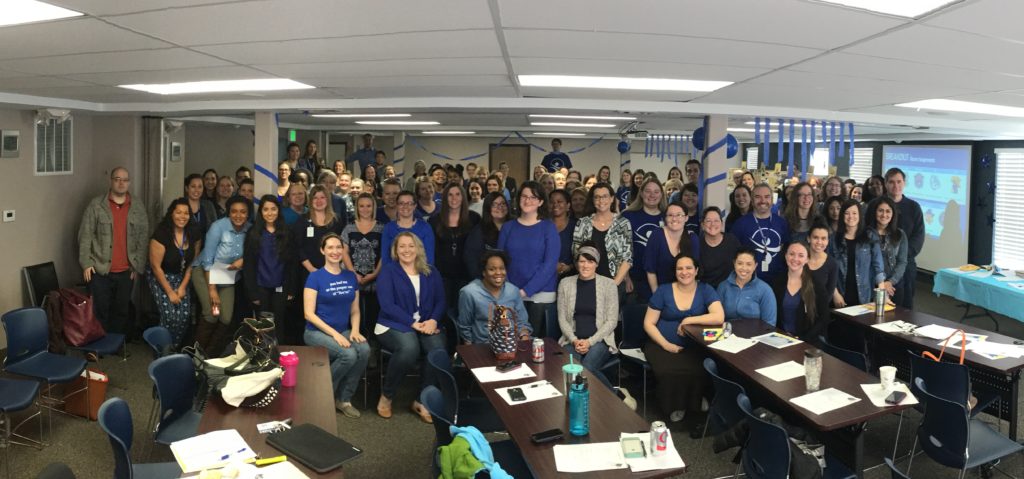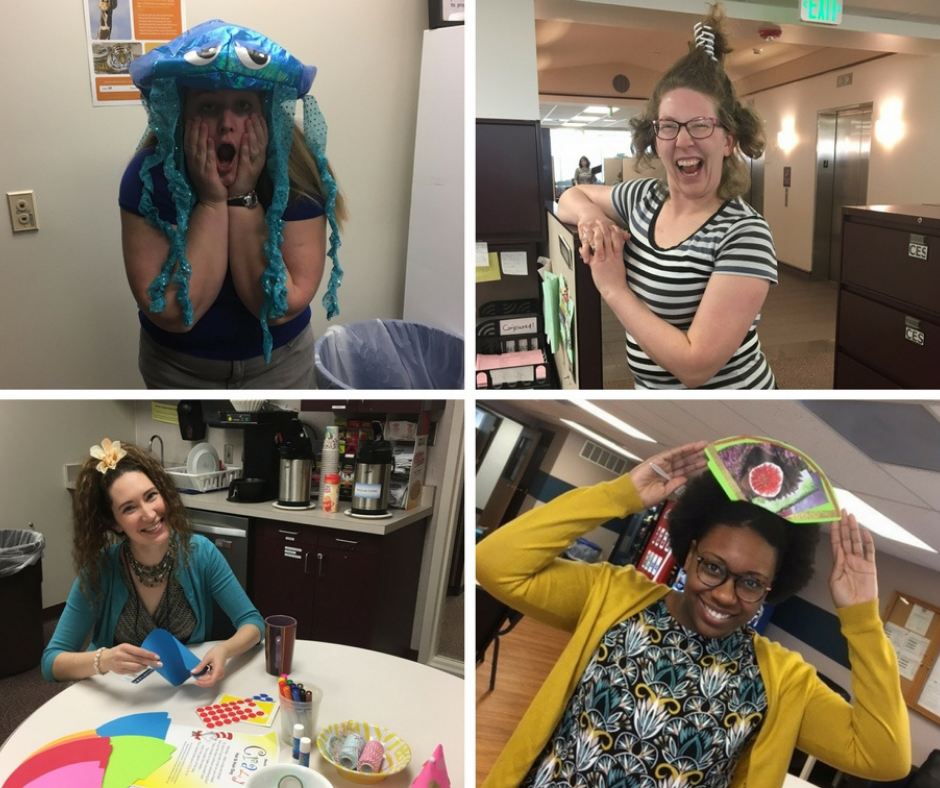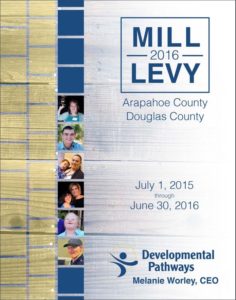Nonprofits are often bound by the double standard of creating big impact with little funding. On the one hand, they’re expected to provide quality service for the good of the community, but on the other hand, they’re also expected to operate with less resources than their for-profit counterparts. Although we at DP are fortunate to have a great deal of community support and funding, there are still many folks in our area whose needs go unmet.
Arapahoe and Douglas counties recognized this situation when voters approved a Mill Levy in 2001 to support individuals with developmental disabilities/delays. Included in the Mill Levy agreement was a priority to hire and nurture talented employees who can fulfill unmet needs:
Mill Levy Emphases
- To provide services to individuals on the waiting list
- To raise the quality of services for all individuals with a developmental disability/delay
- To stabilize and improve the overall service infrastructure, with particular attention to recruitment, training, and retention of quality staff
You may think about the emphases as a pyramid—a solid base of dedicated, skilled staff is required to deliver quality service to the greatest amount of people. So, we believe it’s prudent to invest our workforce. However, investment doesn’t just mean pay, as indicated by the Harvard Business Report in “What Matters More to Your Workforce than Money:”
One of the most striking results we’ve found is that, across all income levels, the top predictor of workplace satisfaction is not pay: It is the culture and values of the organization, followed closely by the quality of senior leadership and the career opportunities at the company.
Creating a Culture of Belonging in Case Management
At Developmental Pathways, we believe we have the mission and values employees choose to stay for. We’re here to serve folks with intellectual and developmental disabilities and to do it with our whole hearts. But, what about workplace culture and career opportunities? Statewide, CCBs experience a high turnover rate, ranging from 32-50% in 2017. At Pathways, our turnover rate is between 17-18%. While that is significantly lower than the state average, we are still working to improve our workplace dynamic.
So, driven by feedback from staff and our commitment to provide quality service, the Case Management Department began to brainstorm ways to better serve the people who work tirelessly for our mission. Here are a few of the ways we’re working to foster a culture of comfort, connection, and community here at DP.
Creating Career Paths
Case Managers asked for meaningful ways to advance in their careers. So, department leaders added new roles, including Senior Case Managers and Assistant Program Managers, to increase opportunities for advancement. This effort supported an overall increase in workforce capacity to respond to soaring enrollments due to the statewide elimination of the SLS Waiver. In the past 2 years, the number of individuals served by Pathways Case Management Department has increased dramatically. An additional 350 people are expected to enroll annually for the foreseeable future. As a result, a more efficient and diversified department emerged to better meet the needs in our area.
Building Community Across Teams
It takes several teams to deliver service to thousands of individuals: Intake, Enrollment, Active, Administration, Quality Assurance. Unfortunately, creating teams with specialized knowledge can also result in departmental silos. In an effort to build community across teams, DP hired a Staff Engagement Specialist. This person’s goal is to provide opportunities for employees on different teams to build relationships with their counterparts elsewhere. Recently, the Case Management Department hosted a Spirit Week full of themed dress-up days and competitions circa high school pep rally days. Other upcoming events include our annual Field Day- we have a thing for resurrecting grade school activities.
Investing in Training and Professional Growth
Most new employees in other organizations train for a couple of weeks, then gradually take ownership of their new positions. Case Managers undergo intensive training for 3 weeks. After that time, they begin navigating a web of Targeted Case Management, government rules and regulations, and service providers. In an effort to aid in the transition process, our Staff Engagement Specialist serves as the single point of contact for new hires. This person walks with people through their extensive training, answers Human Resource questions, and helps new folks plug into the organization. Part of connecting new staff members is providing mentorship by Senior Case Managers and Program Managers.
Our partner organization, Nonprofit Management Services of Colorado (NMSC) has assisted in the training effort as well. Their Learning and Organizational Development team created two programs for professional growth: The High Potential Learning Path and Risin’ Up to Management. These learning series are both year-long programs that maximize individuals’ unique abilities and establish leadership qualities.
Listening
It seems simple, but it’s a game changer. The most important initiative we’ve launched is actively tuning into important conversations among our employees. The Staff Advisory Council is a group of non-management employees in Case Management who meet regularly with the department director and Staff Engagement Specialist to discuss ways in which we can improve employee culture. Several topics discussed have been communication and opportunities for connection when working remotely. To this end, we’ve implemented off-site working meetups and prioritized clear lines of communication.
This month we’re sending out a Staff Engagement Survey to the Case Management Department. We hope to learn more ways we can create a work culture folks that look forward to. We know that our staff are dedicated to our mission—you won’t find a group with a bigger heart anywhere else. Now, our goal is to make sure we’re enriching their lives as they do for others.



